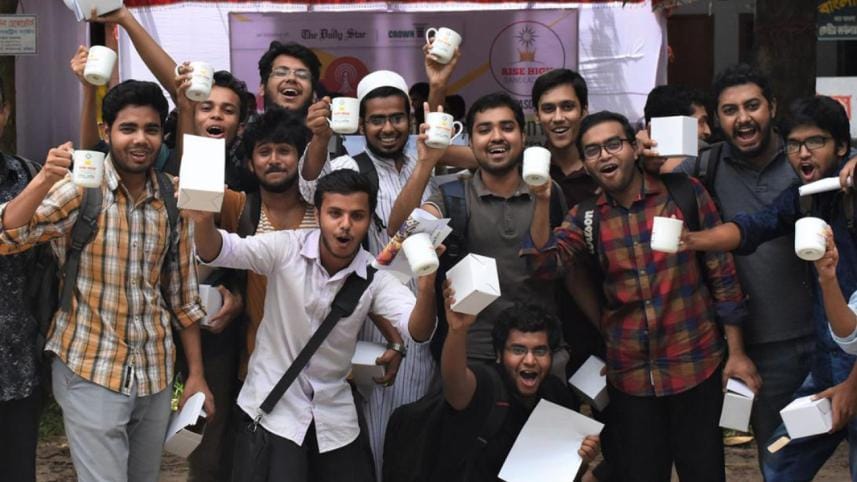Skills learning changes lives and must be lifelong

Today, there are 1.2 billion young people aged between 15-24 years—almost a fifth of the world's population. At a time when these youngsters should be looking forward to entering adulthood and the world of work, many are entering a period of uncertainty and certain unemployment.
These youngsters are three times more likely to be unemployed and—if they are fortunate enough to land a job—at far greater risk of low-quality, poorly paid, unskilled jobs. The situation is even worse for young women in search of decent work and livelihoods; they are more likely to be underemployed, underpaid and under temporary or part-time contracts.
As we mark World Youth Skills Day 2019, we must highlight the plight of today's youth and the urgent need for governments across the globe to invest in the skilling of these young people.
Bangladesh is a relatively young country where the median age is just 25 years. Each year, more than two million young Bangladeshi men and women enter the labour market seeking decent work and pay.
These youngsters are living in one of the world's fastest growing economies, boasting a growth rate of 7.9 percent for the past two years. Sadly, many millions are oblivious to this growth and not benefitting from the financial boom. Bangladesh's youth must be an integral part of the nation's economic success story, and that means equipping them with demand-driven skills and making them employable—not just in Bangladesh, but anywhere in the world where marketable skills are needed.
To address this demand, the government has placed great emphasis on strengthening the skills development system, in particular, the technical and vocational education and training (TVET) sector.
Working with the ILO, through a European Union-funded project called Skills 21, the government is also putting in place a strengthened qualification framework. Focused on the learner, it will allow for greater flexibility in learning as well as help in developing a stronger system for comparing qualifications earned in Bangladesh with those in other parts of the world.
Given that a large part of the Bangladesh economy is still informal, it is important to realise that a large number of young people learn skills through informal apprenticeships or on-the-job training. It is, therefore, critical to have a system that not only recognises these skills but also certifies them in line with international standards.
It is also important that the skills being learnt are relevant to the modern-day labour market. For example, an excellent training programme on how to operate typewriters—in the digital age of computers and the Internet—has very little relevance or need. This is why industry and employers must be involved in deciding what training should be offered, and also be directly involved in delivering practical, on-the-job training.
A good example is the importance of marketable language skills in the care-giving sector. With rapidly ageing populations in Japan, South Korea and many parts of western Europe, there is huge potential for decent work in caring for the elderly. A smart government initiative is encouraging Bangladeshi youngsters, who are aspiring to migrate to South Korea and Japan, to learn Korean and Japanese. Being a skilled caregiver is one thing but being able to effectively communicate with your ward, in their mother tongue, could help potential carers secure decent jobs and transform their lives and that of their families.
Such a system must also offer equal access for all—especially young women, vulnerable communities and those with disabilities.
The ILO's experience shows that supporting youth in their school-to-work transition, using industry-led apprenticeships, and offering the latest digital skills training will help Bangladesh's youth better prepare for the jobs of the 21st century.
That is why every young Bangladeshi, irrespective of whether they are male or female, disabled or otherwise, must be given an opportunity to learn the skills of tomorrow. Not just today, but throughout their lives.
Tuomo Poutiainen is the Country Director of ILO Country Office for Bangladesh.




 For all latest news, follow The Daily Star's Google News channel.
For all latest news, follow The Daily Star's Google News channel.
Comments